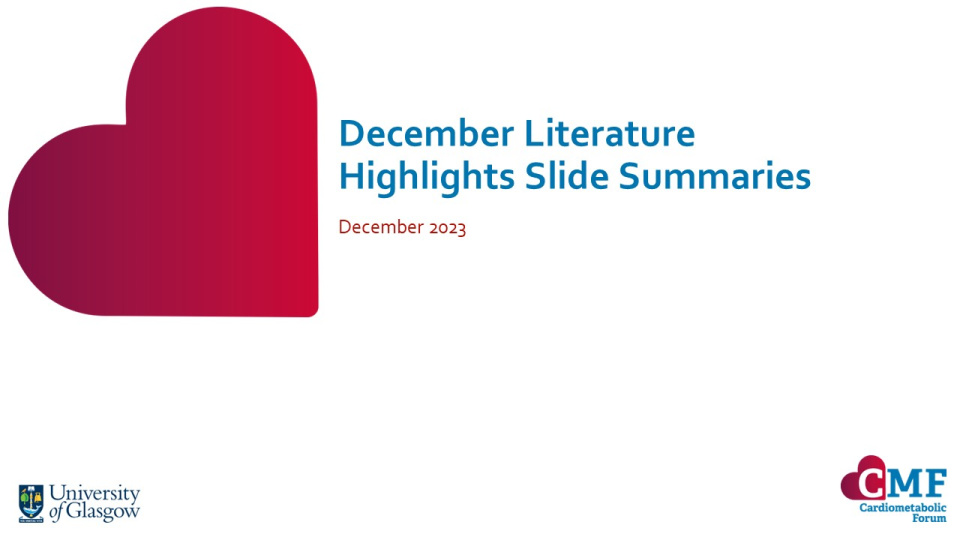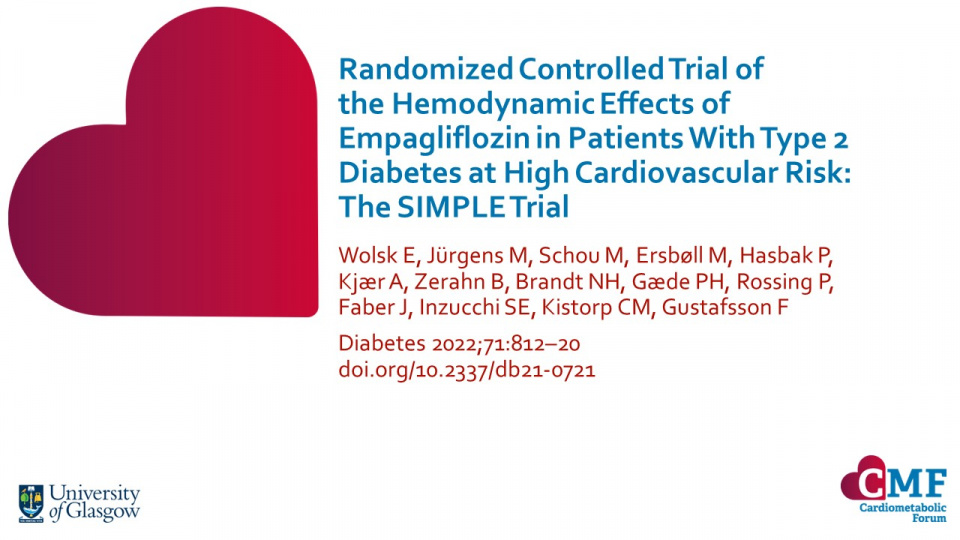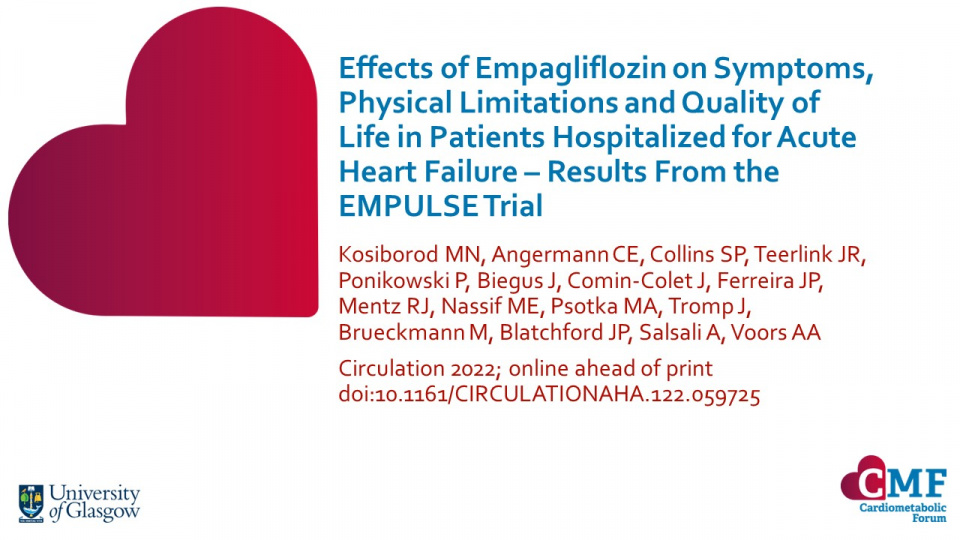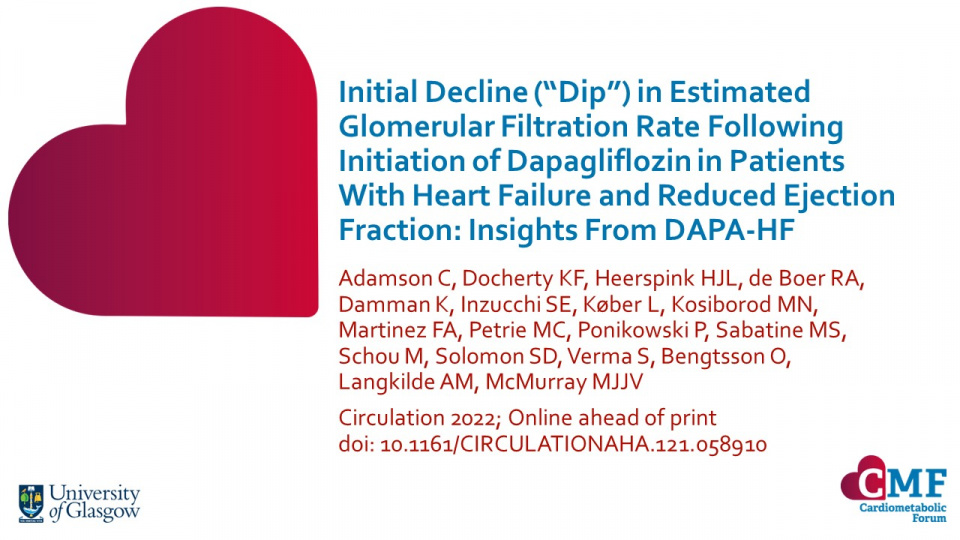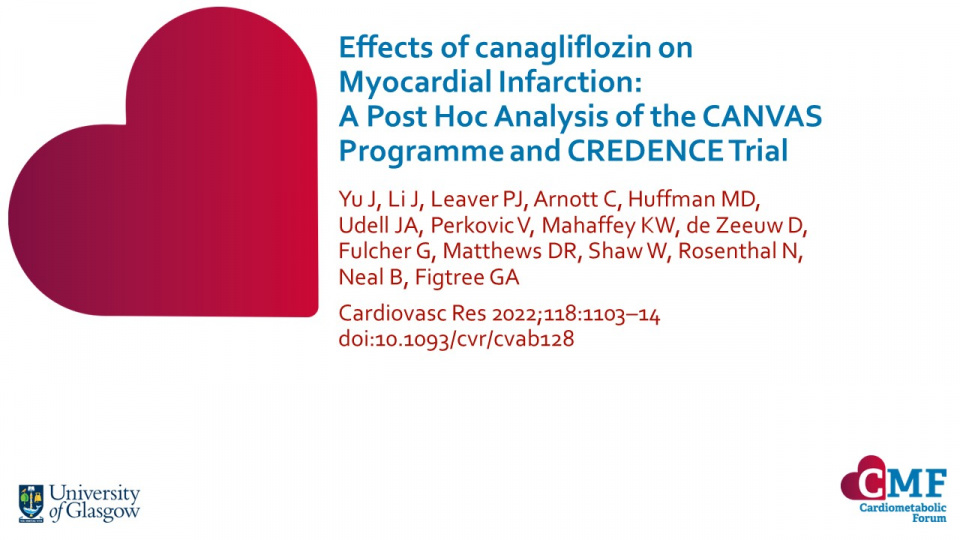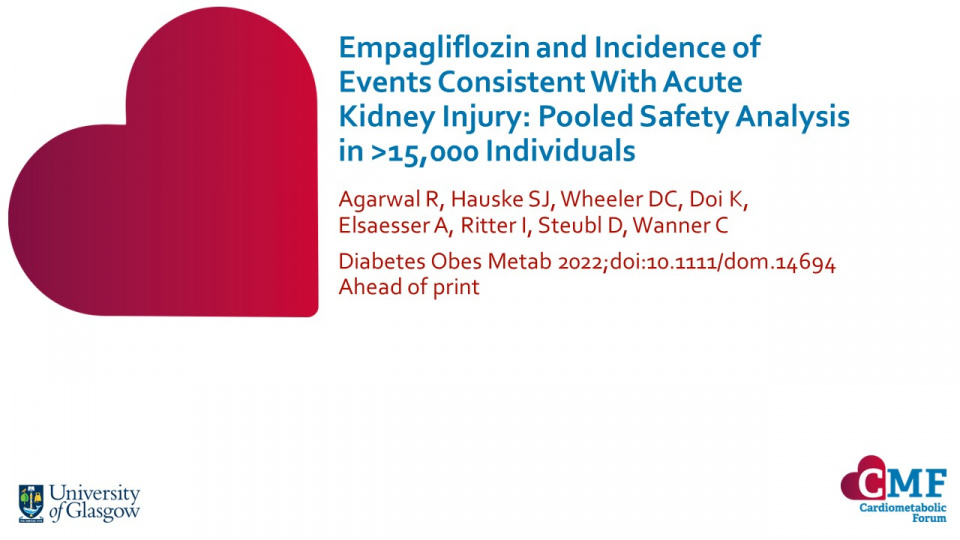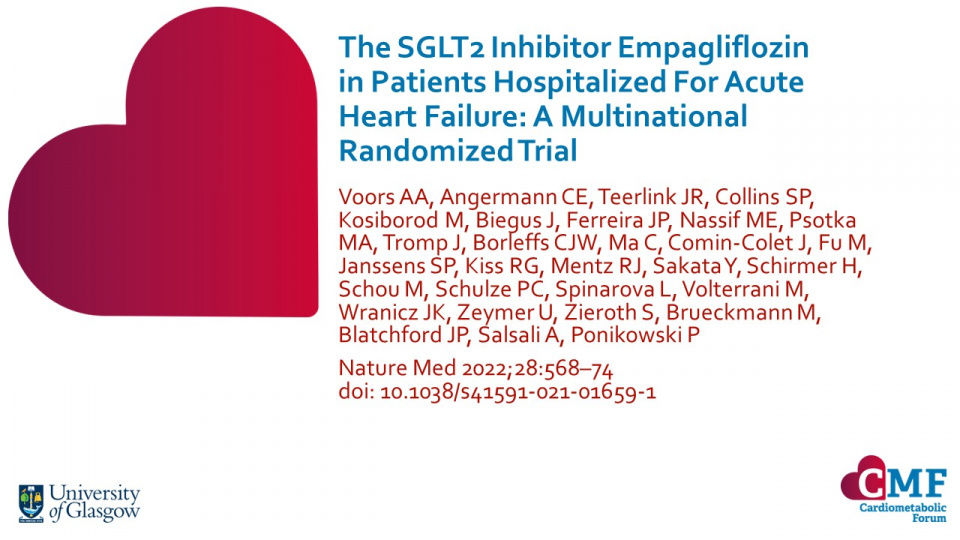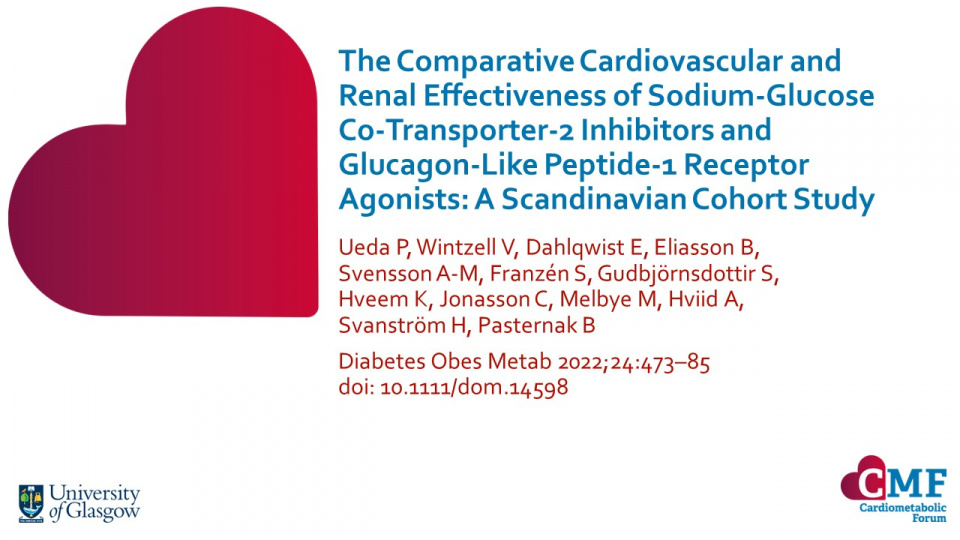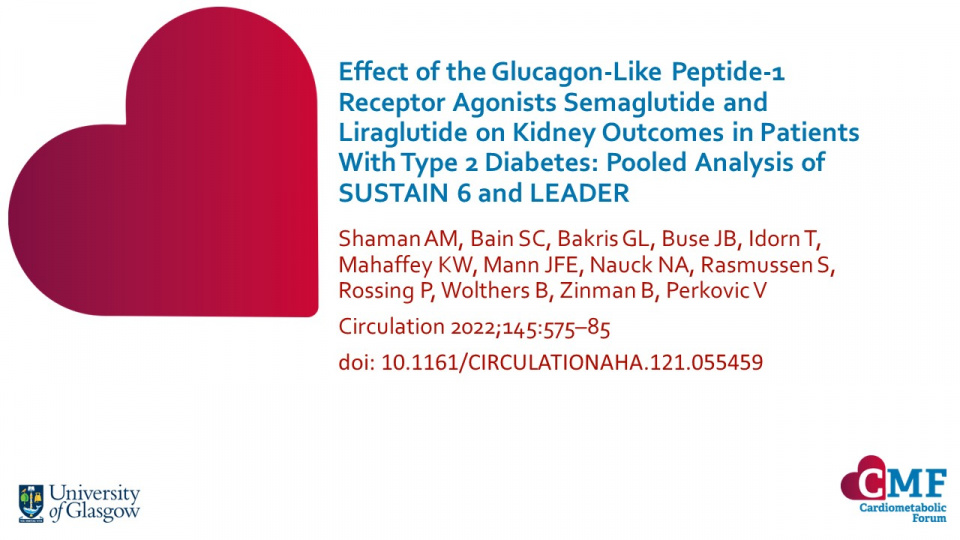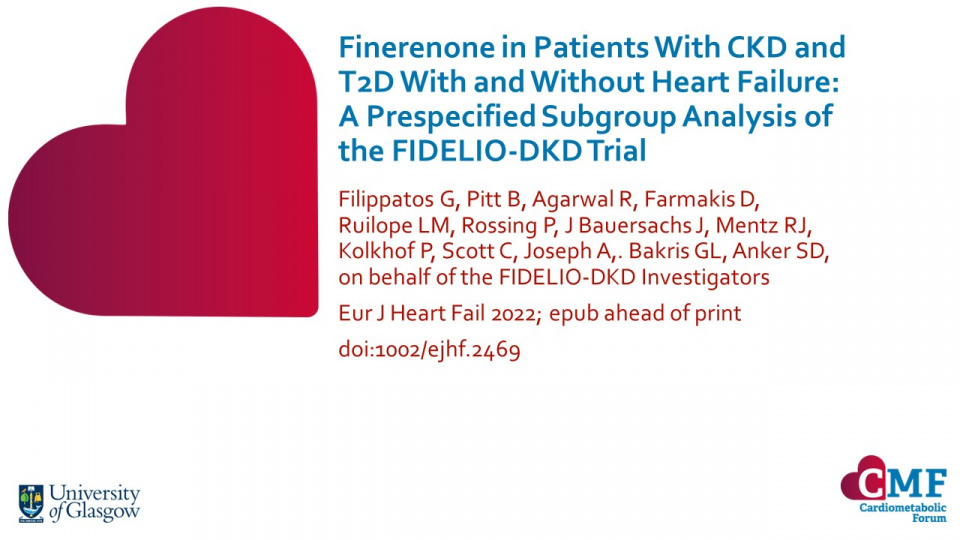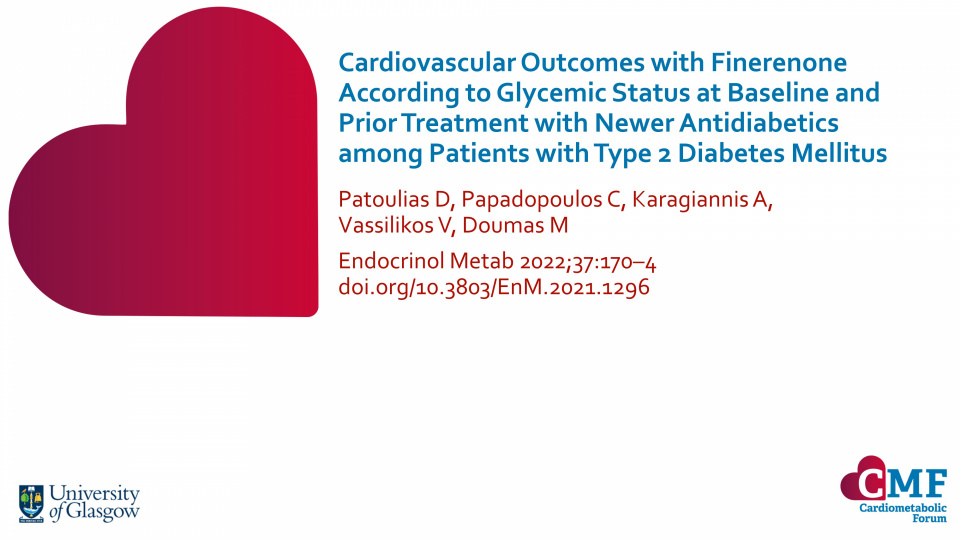Publications
Stay up to date with our literature reviews which are curated by experts to feature the most important publications released each month. Explore our publications for access to concise summary slides for your own use.
Randomized Controlled Trial of the Hemodynamic Effects of Empagliflozin in Patients With Type 2 Diabetes at High Cardiovascular Risk: The SIMPLE Trial
Diabetes 2022;71:812–20 doi.org/10.2337/db21-0721
In this analysis of data from the SIMPLE trial, empagliflozin did not reduce left heart filling pressure more than placebo at submaximal exercise in patients with T2D at high CV risk. However, it was observed that empagliflozin reduced pulmonary capillary wedge pressure (PCWP) at a magnitude of clinical significance in patients at rest. The findings suggest cardiac benefits beyond the diuretic effect of sodium-glucose co-transporter-2 inhibitor (SGLT2i) treatment and could explain a significant part of the CV benefits observed in clinical trials.
Effects of Empagliflozin on Symptoms, Physical Limitations and Quality of Life in Patients Hospitalized for Acute Heart Failure – Results From the EMPULSE Trial
Circulation 2022; online ahead of print doi:10.1161/CIRCULATIONAHA.122.059725
This post hoc and prespecified analysis of the EMPULSE trial found that initiation of empagliflozin in patients hospitalised for acute heart failure (AHF) produced clinical benefit regardless of the degree of symptomatic impairment at baseline. Empagliflozin also improved symptoms, physical limitations, and quality of life – with benefits seen as early as 15 days and maintained through 90 days.
Initial Decline (“Dip”) in Estimated Glomerular Filtration Rate Following Initiation of Dapagliflozin in Patients With Heart Failure and Reduced Ejection Fraction: Insights From DAPA-HF
Circulation 2022; Online ahead of print doi: 10.1161/CIRCULATIONAHA.121.058910
The results of this subgroup analysis from DAPA-HF show that – although estimated glomerular filtration rate (eGFR) decline is generally associated with poorer prognosis in most situations – an initial dip with a sodium-glucose co-transporter-2 inhibitor (SGLT2i) may be associated with slower rate of decline in kidney function.
Effects of canagliflozin on Myocardial Infarction: A Post Hoc Analysis of the CANVAS Programme and CREDENCE Trial
Cardiovasc Res 2022;118:1103–14
Yu et al. report that canagliflozin is not associated with a reduction in overall myocardial infarction in the pooled CANVAS and CREDENCE population. The CANVAS cohort found a possible differential effect on ST-elevation myocardial infarction (STEMI) and non-STEMI warranting further investigation.
Empagliflozin and Incidence of Events Consistent With Acute Kidney Injury: Pooled Safety Analysis in >15,000 Individuals
Diabetes Obes Metab 2022;doi:10.1111/dom.14694 Ahead of print
This comprehensive analysis indicates that empagliflozin is not associated with increased risk of acute kidney injury or acute kidney failure compared with placebo treatment.
The SGLT2 Inhibitor Empagliflozin in Patients Hospitalized For Acute Heart Failure: A Multinational Randomized Trial
Nature Med 2022;28:568–74 doi: 10.1038/s41591-021-01659-1
Empagliflozin is well tolerated in patients hospitalised for acute heart failure, resulting in significant clinical benefit 90 days after treatment initiation.
The Comparative Cardiovascular and Renal Effectiveness of Sodium-Glucose Co-Transporter-2 Inhibitors and Glucagon-Like Peptide-1 Receptor Agonists: A Scandinavian Cohort Study
Diabetes Obes Metab 2022;24:473–85 doi: 10.1111/dom.14598
In this study by Ueda et al., SGLT2 inhibitors were associated with a similar risk of heart failure and a lower risk of serious renal events compared with GLP-1 receptor agonist,s and the use of GLP-1 receptor agonists was associated with a slightly lower risk of MACE compared with SGLT2 inhibitors.
Effect of the Glucagon-Like Peptide-1 Receptor Agonists Semaglutide and Liraglutide on Kidney Outcomes in Patients With Type 2 Diabetes: Pooled Analysis of SUSTAIN 6 and LEADER
Circulation 2022;145:575–85 doi: 10.1161/CIRCULATIONAHA.121.055459
In this analysis by Shaman et al., semaglutide and liraglutide offered kidney-protective effects in patients with type 2 diabetes, especially those with pre-existing chronic kidney disease.
Finerenone in patients with CKD and T2D with and without heart failure: A prespecified subgroup analysis of the FIDELIO-DKD trial
PMID: 35239204 DOI: 10.1002/ejhf.2469
This subgroup analysis of the FIDELIO-DKD trial discovered that finerenone improved cardiorenal outcome in patients with chronic kidney disease and type 2 diabetes.
Cardiovascular Outcomes with Finerenone According to Glycemic Status at Baseline and Prior Treatment with Newer Antidiabetics among Patients with Type 2 Diabetes Mellitus
Endocrinol Metab 2022;37:170–4; doi.org/10.3803/EnM.2021.1296
Finerenone induced a 13% risk reduction in MACE (a composite of death from CV causes, nonfatal myocardial infarction, nonfatal stroke, or hospitalisation for heart failure) regardless of prior glycaemia. There was no difference in finerenone-derived MACE benefits whether patients were on baseline SGLT2i or GLP-1RA or not.

